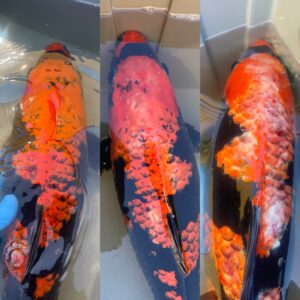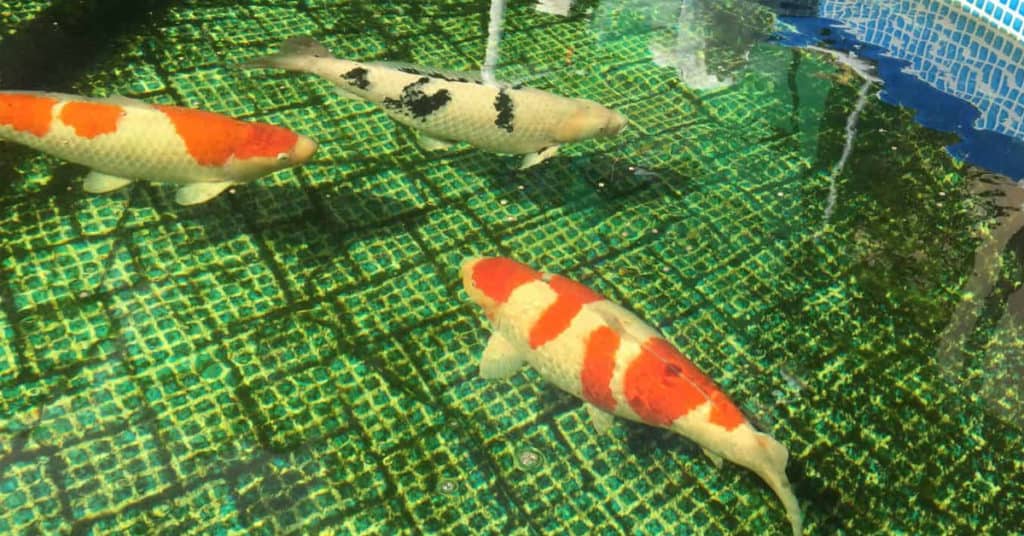Stress in fish occurs just like stress in other animals. What defines a “stressful event” may differ, but the behavioral and biological changes are the same.
The Stress Response
With any stressor, a fish’s body will react in the following:
- Primary Response – seconds to hours after event
- Increased corticosteroid and catecholamine release – hormones such as cortisol, epinephrine and norepinephrine
- Secondary response – minutes to hours after event
- Changes in hematological, metabolic and hydromineral levels – these processes include blood glucose, lactate, liver and muscle glycogen and osmolality
- Tertiary Response – minutes to days after event
- Changes to behavior and performance – homeostatic balancing, organ function and production
The stress response is a very beneficial chain of events that have allowed many species to evolve over time. Something trying to eat you? Swim away! Not enough to eat? Go look somewhere else! Not enough mates? Go look under that big rock! In the short term, known as an acute stress response, fish can get out of a bad situation and improve their chances of continuing on to create little fish. However, when confined to a synthetic environment, such as a manmade pond or tank, they may be in a stressful situation they cannot escape.
Prolonged stress in fish leads into a chronic stress environment. If the stress response is left in the “ON” position too long, it can start to cause the shut down or malfunction of various body systems. This is similar to you students who get a cold right after cramming your brains out for a difficult exam, or right after your extended family leaves after the holidays. Chronic stress causes decreased immune function (more infections), developmental defects (stunting), and decreased reproductive capabilities. This is the stress that is harmful to your pet fish. Can you guess the #1 cause of chronic stress in fish?
Events Causing Stress in Fish
What causes a fish to stress out? Certainly they don’t have to worry about finances, school work or where they’re going to park their car when they arrive home. Here are some examples of what can cause stress in your fish, and other pets for that matter:
- Water quality – #1 cause of stress in fish
- Environmental – hiding places, vibrations, overcrowding
- Social – predator/prey, fighting, breeding
- Handling/transport – fish not meant to be in anything but water
- Nutritional – malnutrition, not enough to go around
- Therapeutics – chemical treatments
- Pathogens – viruses, bacteria, fungi, parasites
- Loss of equilibrium – over/under inflated swim bladder
And many of these can come in combinations, especially if poor water quality is the kick off.

Prevention and Management
So, how do we provide the best low-stress environment for your fish?
- Maintain good water quality – hopefully, this goes without saying by now.
- Good nutrition – give your fish the vitamins, minerals, protein, fat and carbs they require for healthy bodies
- Adequate housing space/territory – this is critical in tanks or ponds with fish that need a lot of room, a specific type of home or tend to be more aggressive. Do your research prior to combining species to mitigate this challenge as much as possible.
- Good biosecurity and quarantine – prevent the introduction of new diseases and other pathogens by a 4-6 week quarantine in a SEPARATE system with SEPARATE equipment.
- Treat disease promptly and correctly – this does NOT mean dump every over-the-counter product from the pet store into your tank and cross your fingers. If you need help treating your fish, talk to your local aquatic veterinarian.
- Handle fish safely and as little as possible – if you put your hands/net on a fish, they assume they are about to be eaten. Make your transport plans before you need to move anyone. Don’t chase your fish for hours on end. Find a professional or use a licensed sedative.


Pingback: Fungal Disease in Fish – Aquatic Veterinary Services
Pingback: Fish Stunting - Aquatic Veterinary Services
Pingback: Fake Fish Diagnoses - Aquatic Veterinary Services